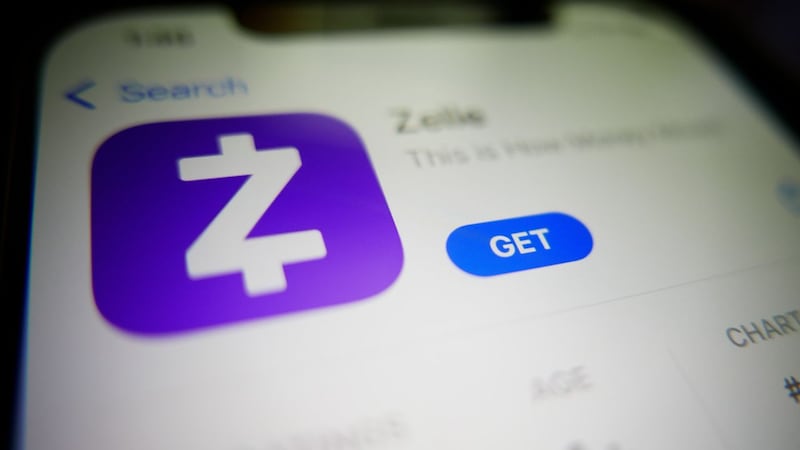ORLANDO, Fla. — An Orlando man claims the popular payment app Zelle that’s promoted by his bank cost him nearly $15,000. The money disappeared from his account after someone made a handful of Zelle payments to people he claims he didn’t know.
This local case comes at a time when Congress is taking a close look at Zelle and other payment apps.
It’s clear payment apps like Zelle make sending money person-to-person easier than ever before.
“I’ve been using Zelle for about a year and maybe two at the most,” said Dan Haughton.
Haughton told Action 9 he didn’t use it often and the highest amount he ever sent was $200. The app is integrated with his online banking at Truist where he and his wife have had various accounts since 1986.
READ: ‘Very frustrating’: New home buyers complain after lengthy delays
Haughton said, “Our first checking account with what was Sun Bank at the time, then later Suntrust, now Truist.”
He never had a problem with the bank or Zelle until this year when he tried to send a payment to his wife’s tennis coach.
“I went online on my phone to do it. And I got a message that said, ‘You’ve exceeded your limit for the month.’ And I thought, ‘That’s weird,’” Haughton said recalling that moment.
It turns out someone made five separate transactions on his account to three different people over a few days.
He added, “I have no idea who they are, don’t recognize their names, don’t recognize the phone numbers.”
What Haughton does know is more than $14,000 disappeared from his account. He believes likely hackers hit his computer and gained access since malware was later discovered.
And he’s not the only one to have problems with Zelle.
“The banks of America have a dirty little secret. It’s called Zelle,” said U.S. Senator Richard Blumenthal during a congressional committee hearing in May. The hearing was titled Fraud Alert!: Shedding Light on Zelle. It featured fraud victims and consumer advocates pushing leaders for more regulation because of victims getting scammed and losing money.
Senator Blumenthal said, “Their attitude has been ‘not our problem.’ Well, to the banks of America, particularly the seven that own and operate Zelle, it is your problem.”
The nation’s seven largest banks, including Truist own Zelle. According to an investigation by lawmakers Zelle users lost $440 million by fraud in 2021.
For Dan Haughton, dealing with the aftermath has been a nightmare. He showed Action 9 a denial email from Truist indicating its investigation concluded he made and benefited from the transactions.
Action 9 Consumer Investigator Jeff Deal asked him, “What did you think when you received the email saying that you initiated this and that you benefited from it?” Haughton responded, “I was livid.”
Truist told Action 9 it couldn’t comment on his case for privacy reasons, even if Haughton signed a release.
Instead it sent this statement with bullet points of information:
Truist provides a variety of ways to protect clients from fraud and scam activity, including coordinating with participating banks of the Zelle® network. We encourage clients to use Zelle® to transact only with people they know and treat Zelle® the same as cash. We’re committed to helping our clients learn about how they can keep their accounts and personal information safe, secure, and avoid fraud. Truist provides a variety of controls to protect clients from fraud and scam activity, including:
• Multi-layers of defense to protect client account credentials and transaction monitoring for suspicious activity
• Coordination across other participant banks of the Zelle® network to identify and shut down scam activity
• Prompts within the user experience for users to identify red flags that may indicate scams
We also provide tools, tips, and resources on our website that consumers can visit to learn more:
• Learn how to protect your accounts and information
• Learn how to protect against fraud
• Common fraud and scams
--
A spokesman for Early Warning Services, LLC the company behind Zelle responded by sending this statement:
In addition to reporting fraud or scams to their bank, consumers should report them immediately through the online channel where they encountered the scammer to help curb further negative activity from that account.
Less than one-tenth of one percent of Zelle® payments are reported as fraud or scams, and that number keeps declining. Helping consumers safely pay is a top priority for Zelle®, and we have educational pages on our site dedicated to Tips for Safe Payments and Zelle Safety 101 that offer consumers information on how to protect their accounts and avoid falling victim to scams.
--
But neither Truist nor Zelle has been willing to help Dan Haughton. He feels betrayed as a customer and wants to warn others about the risks of using Zelle with Truist.
“I think there’s a much bigger problem here than anyone wants to acknowledge,” Haughton said.
The takeaway from this case seems to be consumers must be extra vigilant to protect their own account information because even with the defense and protections Truist touts, there is no guarantee your money is safe.
©2024 Cox Media Group









